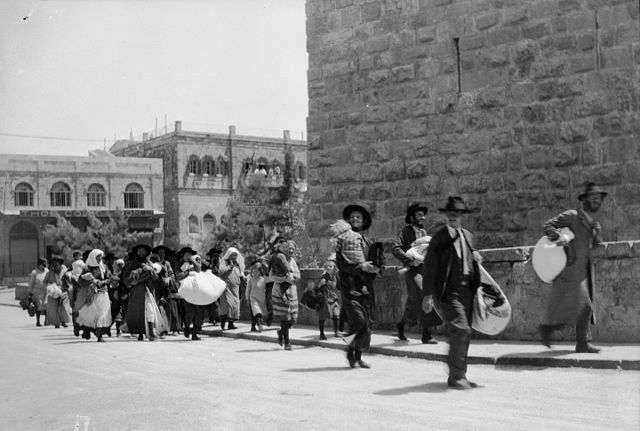The Shaw Report, officially the Report of the Commission on the Palestine Disturbances of August 1929, commonly known as the Shaw Commission, was the result of a British commission of inquiry, led by Sir Walter Shaw, established to investigate the violent rioting in Palestine in late August 1929. The commission's report was issued in March 1930 and led to the establishment of the Hope Simpson Enquiry in May 1930. It concluded that the cause of the rioting was based in Arab fears of continual Jewish immigration and land purchases, particularly resonating from a growing Arab landless class. This was later reiterated in the Hope Simpson Enquiry and subsequent Passfield white paper, both which called for limited Jewish immigration to Palestine.
Members of Royal Commission 1929. From left: Snell, Morris, Sir Betterton, Mrs Betterton, Cust and Sir Shaw
Report of the Commission on the Palestine Disturbances of August 1929
The Shaw Commission, October 1929, Jerusalem.
The 1929 Palestine riots, Buraq Uprising or the Events of 1929, was a series of demonstrations and riots in late August 1929 in which a longstanding dispute between Palestinian Arabs and Jews over access to the Western Wall in Jerusalem escalated into violence.
During the 1929 Palestine riots, Jewish families at Jaffa Gate fleeing from the Old City of Jerusalem
Jerusalem commissioner Edward Keith-Roach
Rabbi Shlomo Zalman Shach who was murdered during the attack on Motza
One of the houses burned in the riots







